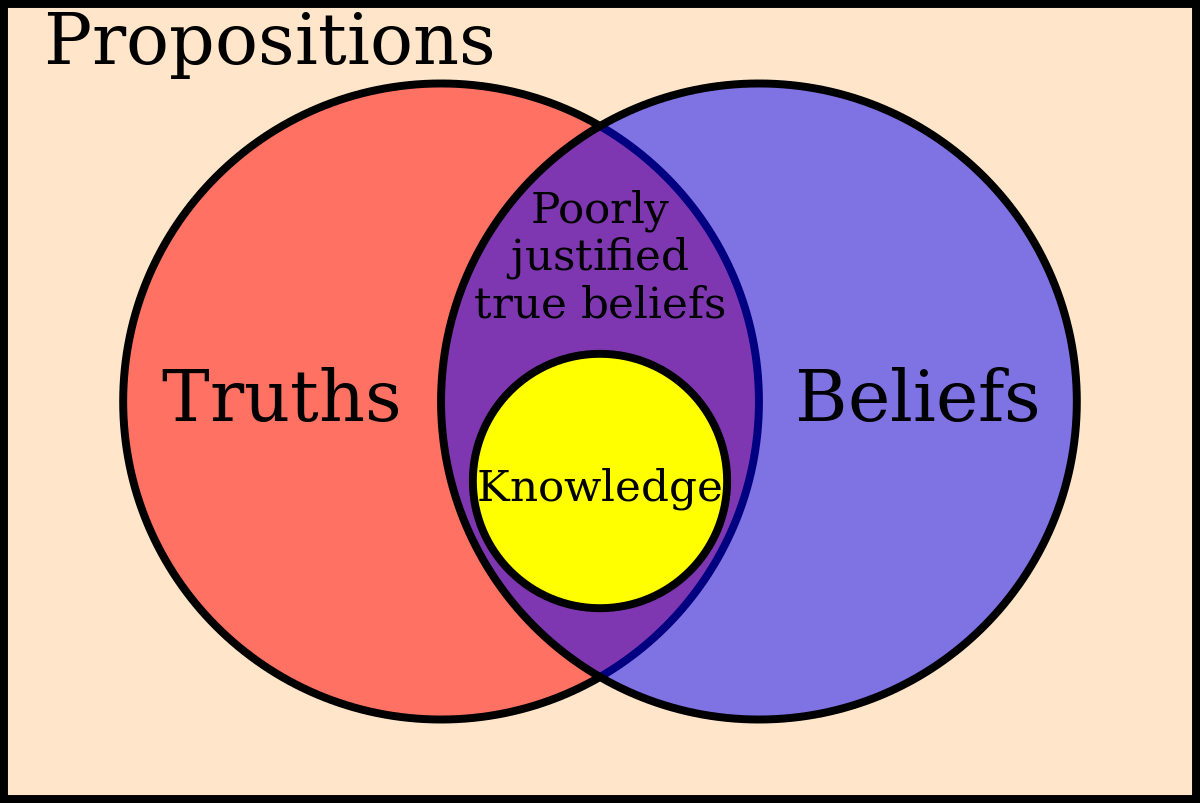 | ||
The following outline is provided as an overview of and topical guide to epistemology:
Contents
- Essence of epistemology
- Branches of epistemology
- Justification
- Alphabetical Order
- History of epistemology
- Epistemological concepts
- Persons influential in the field of epistemology
- References
Epistemology or theory of knowledge – branch of philosophy concerned with the nature and scope of knowledge. The term was introduced into English by the Scottish philosopher James Frederick Ferrier (1808–1864). Epistemology asks the questions: "What is knowledge?", "How is knowledge acquired?", and "What do people know?"
Essence of epistemology
Branches of epistemology
Justification
Alphabetical Order
History of epistemology
History of epistemology
Epistemological concepts
Persons influential in the field of epistemology
References
Outline of epistemology Wikipedia(Text) CC BY-SA
